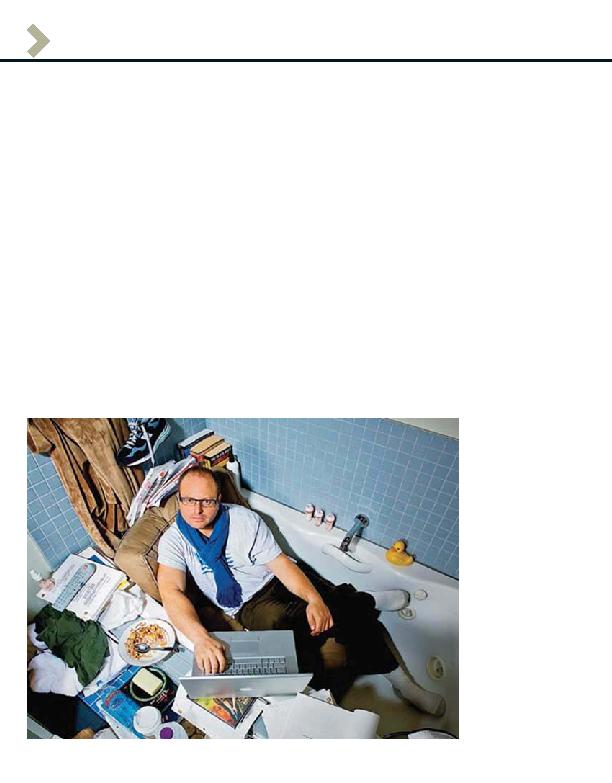
I had a very active imagination but I never re-
ally wrote. A friend of mine moved out to LA
to be a screenwriter and he was telling me
about how that worked. It was in the early
'90s when young kids would sell spec scripts
for $1 million. My friend was like, "You know
you write a movie script and you can make a
million dollars," making it sound that easy.
He was playing that lottery and I said, "Wow,
that's interesting to me!"
read them and learn the format and give him
my opinions: "I wouldn't end it like this; I
would end it like that." And just off that, he
said, "Wow, you're pretty good at this. You
should come out here with me." And I did. I
moved to LA, took a class at UCLA Extension,
wrote a few scripts with this friend, and then
he was out of the business because he was
never really a writer.
took classes on screenwriting. I also had to
a real writer. I wasn't good at essays. I wasn't
a good student. So I took vocabulary and
grammar courses, and did anything and
everything I could to continually arm myself
with the tools I needed to become a screen-
writer. I was self-taught in my early twenties
and I wrote script after script after script.
tals of writing. At that point, I was absolutely
hooked and became better with each script
and eventually became a professional.
you're young and expecting
riches and working hard
and getting rejected. But
that's it. That is the process.
And if you can't survive
that, you'll never make it.
That process and that frus-
tration taught me how to be
a professional, which I did-
n't know at the time.
were the stage of being brand
new and working on the
craft. Then there were the
early professional years,
which were more frustrating
than anything because I had
gotten an agent, I had sold a
thing or two, but nothing
ever really cooked. I got re-
placed on every project and I
never really made that much
money. So I had enough rope
to hang myself with; plus, I
was getting older. That sec-